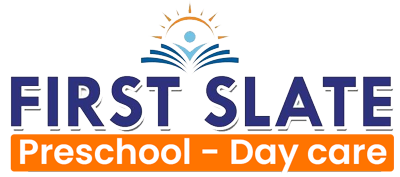UKG, short for Upper Kindergarten, is a crucial phase in a child's educational journey, specifically within the context of early childhood education. This phase typically caters to children aged 4 to 5 years old, marking the transition from preschool to formal schooling. Understanding UKG and its significance is paramount for parents and educators alike, as it lays the foundation for a child's academic and social development.
What is the Importance of UKG Education ?
The UKG phase plays a pivotal role in a child's overall development, encompassing cognitive, emotional, social, and physical domains. At this stage, children undergo significant growth and acquire essential skills that prepare them for primary education and beyond. UKG curriculum focuses on fostering creativity, critical thinking, problem-solving, and language proficiency, setting the stage for lifelong learning.
What are the Key Components of UKG Curriculum ?
Academic Skills
UKG curriculum emphasizes fundamental academic skills such as literacy, numeracy, and basic science concepts. Children engage in activities designed to enhance their reading, writing, counting, and scientific inquiry abilities, laying a solid groundwork for future academic success.

Social Development
Socialization is a vital aspect of UKG education, where children learn to interact, communicate, and collaborate with peers and adults. Through group activities, play-based learning, and classroom discussions, children develop essential social skills such as sharing, empathy, teamwork, and conflict resolution.
Emotional Well-being
UKG curriculum places significant emphasis on nurturing emotional intelligence and resilience in children. Teachers create a supportive and nurturing environment where children feel safe to express their emotions, develop self-awareness, regulate their feelings, and build positive relationships with others.
Physical Development
Physical activity and gross motor skills development are integral components of UKG education. Children engage in structured play, outdoor activities, and movement-based exercises to enhance their coordination, balance, and overall physical fitness. Through active play, children also learn important concepts related to health, hygiene, and safety.
Creativity and Expression
UKG curriculum encourages creativity, imagination, and self-expression through various art, music, drama, and storytelling activities. Children explore different mediums of artistic expression, discover their interests, and unleash their creative potential, fostering a love for learning and self-discovery.
Role of Teachers in UKG Education
Teachers play a pivotal role in facilitating holistic development and learning experiences for children in the UKG phase. They serve as mentors, facilitators, and role models, creating a nurturing and stimulating environment conducive to exploration, discovery, and growth. Through observation, assessment, and individualized instruction, teachers cater to the diverse needs and learning styles of each child, fostering a sense of belonging and achievement.
Parental Involvement and Support
Parental involvement is instrumental in optimizing the UKG experience for children. Parents are encouraged to actively participate in their child's learning journey by engaging in home-based activities, attending parent-teacher meetings, and fostering a conducive learning environment at home. Open communication between parents and educators ensures continuity between home and school, promoting holistic development and academic success
Preparing for Primary Education
The UKG phase serves as a crucial bridge between preschool and primary education, equipping children with the necessary skills, knowledge, and confidence to thrive in formal schooling. As children transition to primary education, they carry with them a strong foundation in literacy, numeracy, social skills, and emotional resilience, laying the groundwork for future academic achievements and personal growth.
UKG education plays a vital role in shaping the academic, social, and emotional development of young children. By providing a nurturing and stimulating learning environment, UKG curriculum prepares children for the challenges and opportunities that lie ahead in primary education and beyond. Through collaborative efforts between educators, parents, and communities, we can ensure that every child receives the support and resources needed to succeed and flourish during this critical phase of their educational journey.
What is the age range for children in UKG at First Slate?
Generally, children in UKG (Upper Kindergarten) at First Slate are typically around 4 to 5 years old, but age ranges may vary slightly depending on the child's individual development and local regulations
What curriculum or approach does First Slate follow for UKG?
First Slate follows a comprehensive curriculum tailored to the developmental needs of children in UKG. Our approach integrates elements of play-based learning, Montessori principles, and structured activities to foster holistic growth and prepare children for the transition to primary school.
What are the daily activities like for UKG students at First Slate?
Daily activities for UKG students at First Slate encompass a diverse range of experiences designed to promote social, emotional, cognitive, and physical development. These may include interactive circle time, guided learning sessions, creative arts and crafts, outdoor play, and language and literacy activities.
How does First Slate support the transition from UKG to primary school?
First Slate provides personalized support to ensure a smooth transition from UKG to primary school. This includes helping children develop essential academic skills, fostering independence and self-confidence, and offering guidance to parents on selecting suitable primary schools and preparing for the transition process.
What facilities and amenities does First Slate offer for UKG students?
First Slate is equipped with modern facilities and amenities tailored to the needs of UKG students. These may include age-appropriate classrooms, indoor and outdoor play areas, learning resources, nutritious meals, and dedicated staff trained in early childhood education.
What are the enrollment options and admission procedures for UKG at First Slate?
Enrollment options and admission procedures for UKG at First Slate vary depending on availability and local regulations. Prospective parents are encouraged to contact our admissions team for detailed information on enrollment criteria, application procedures, fees, and any other relevant requirements.




